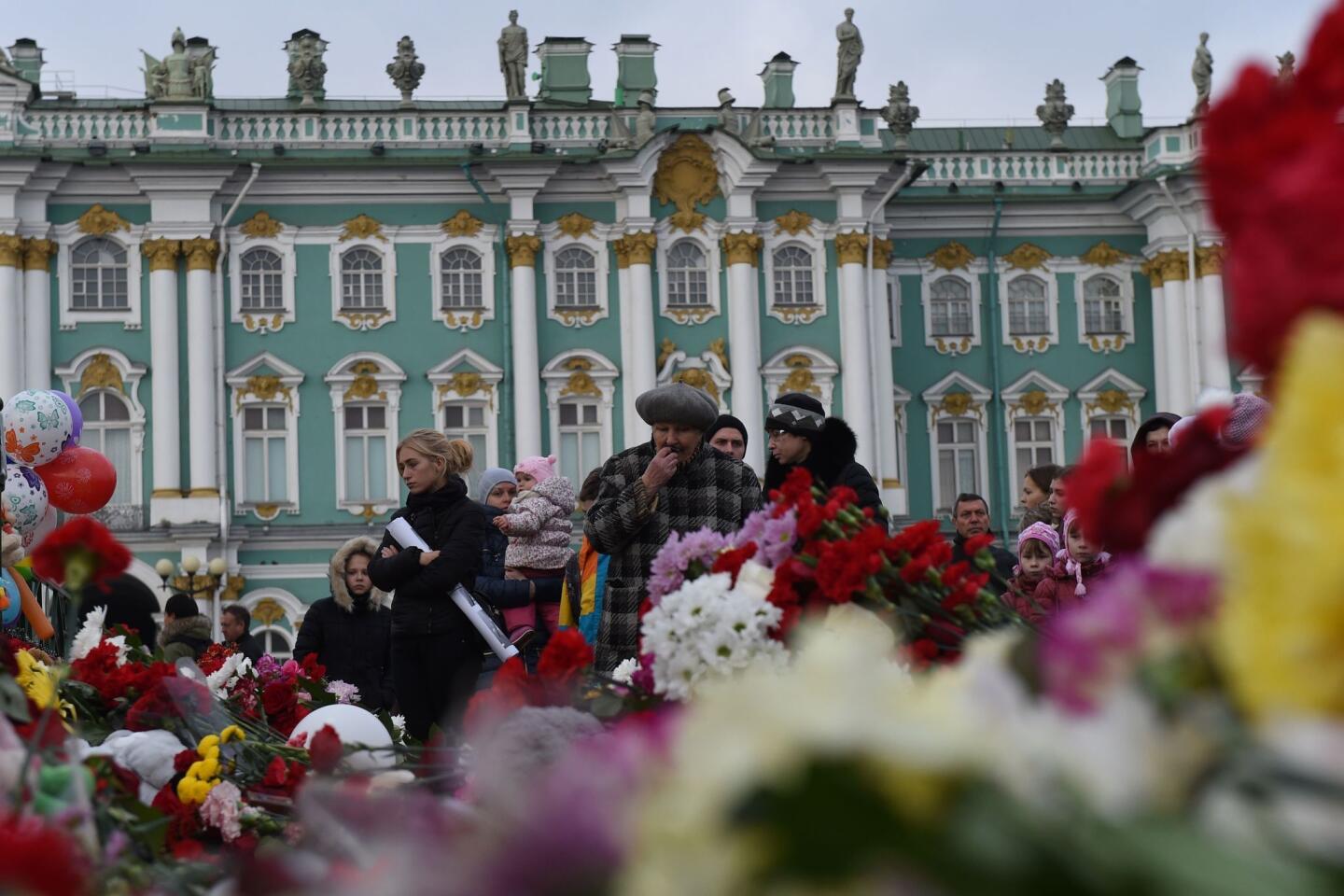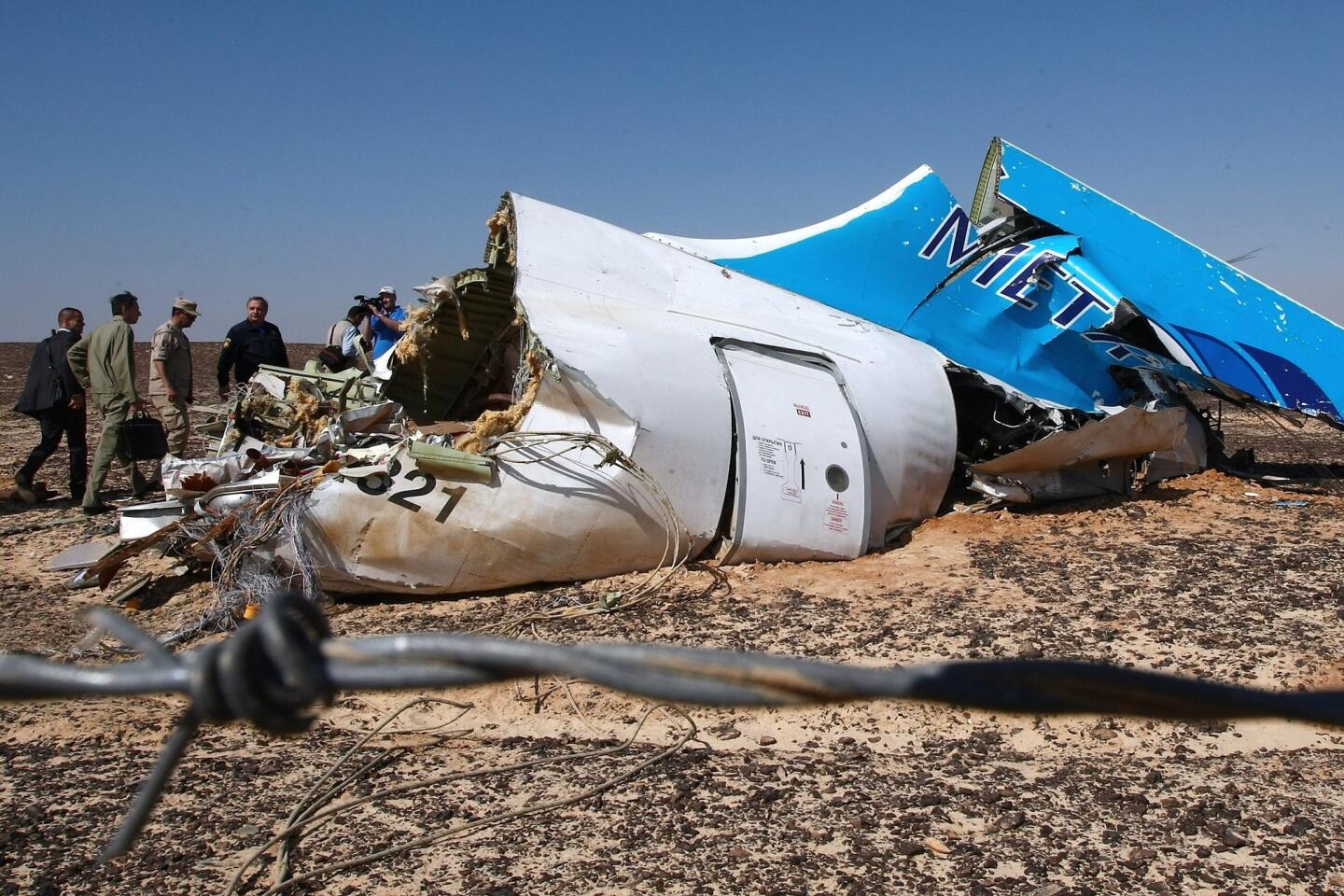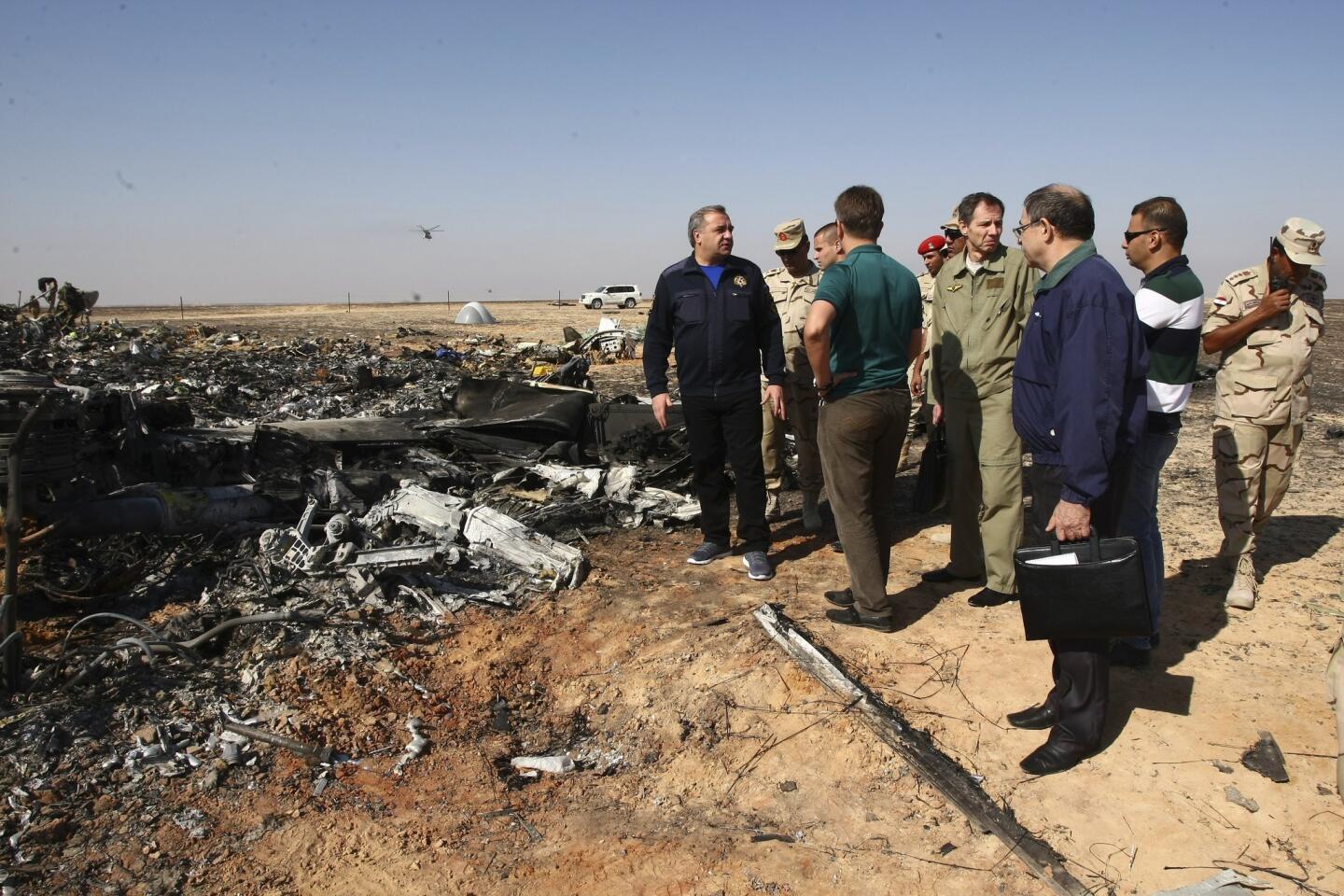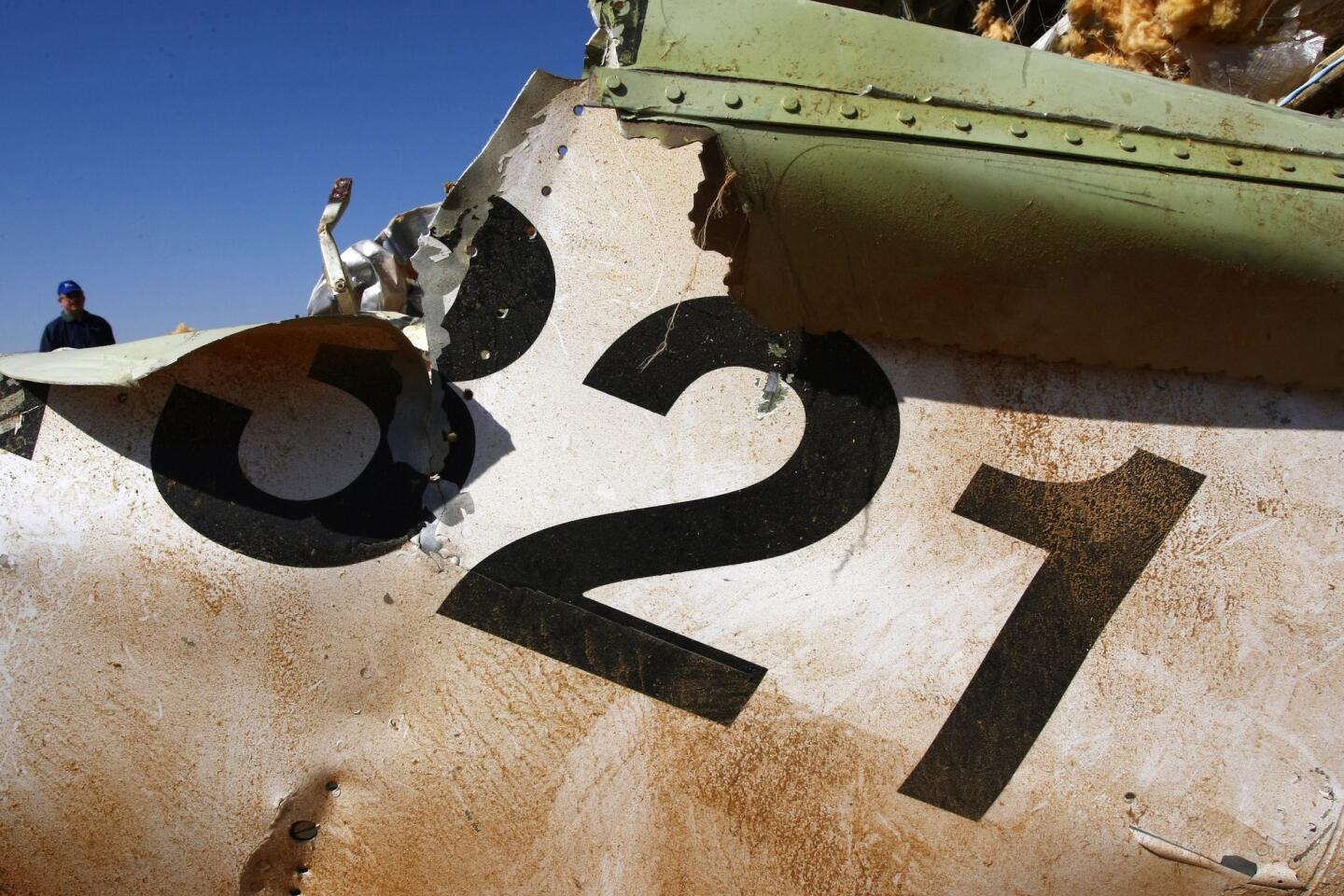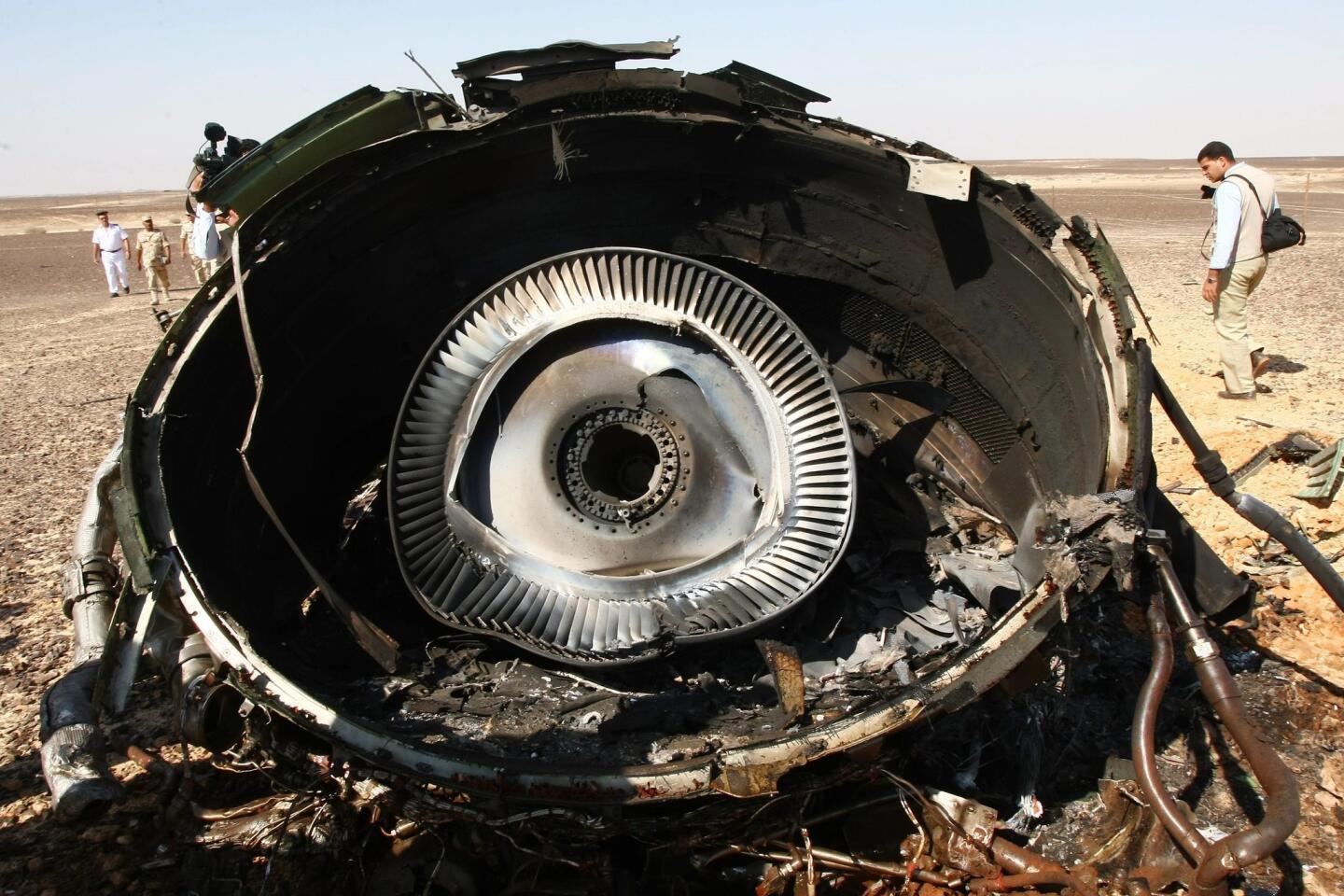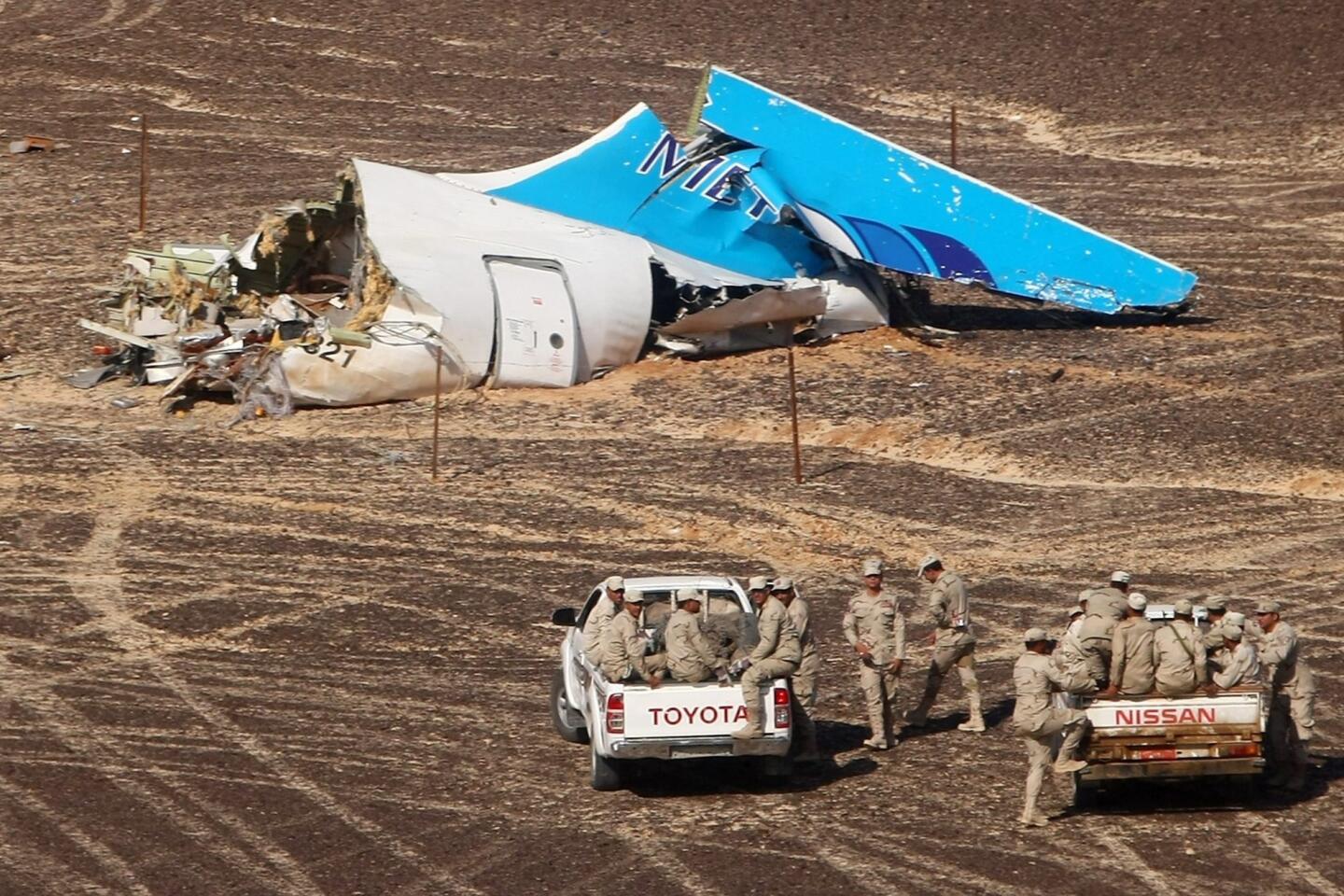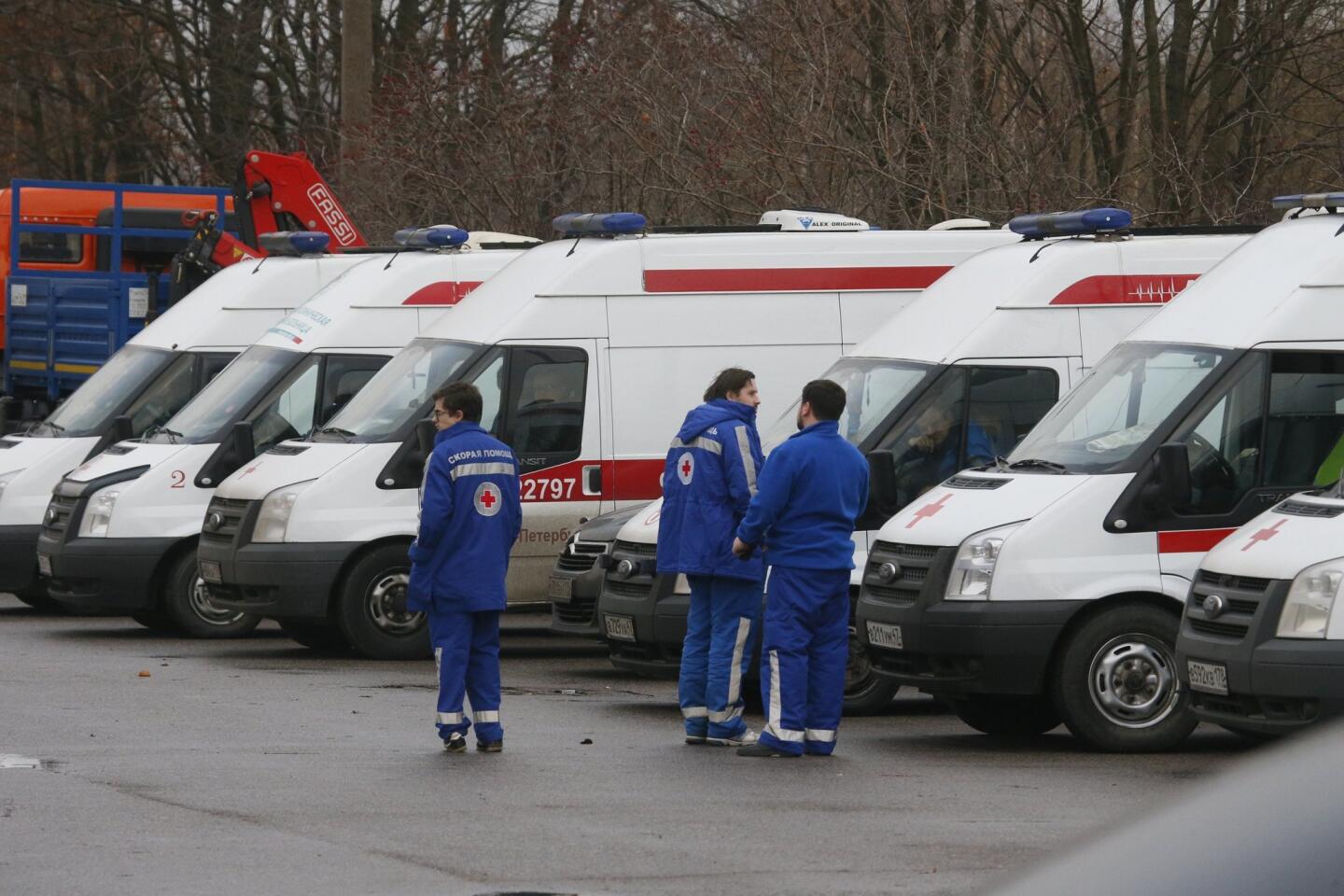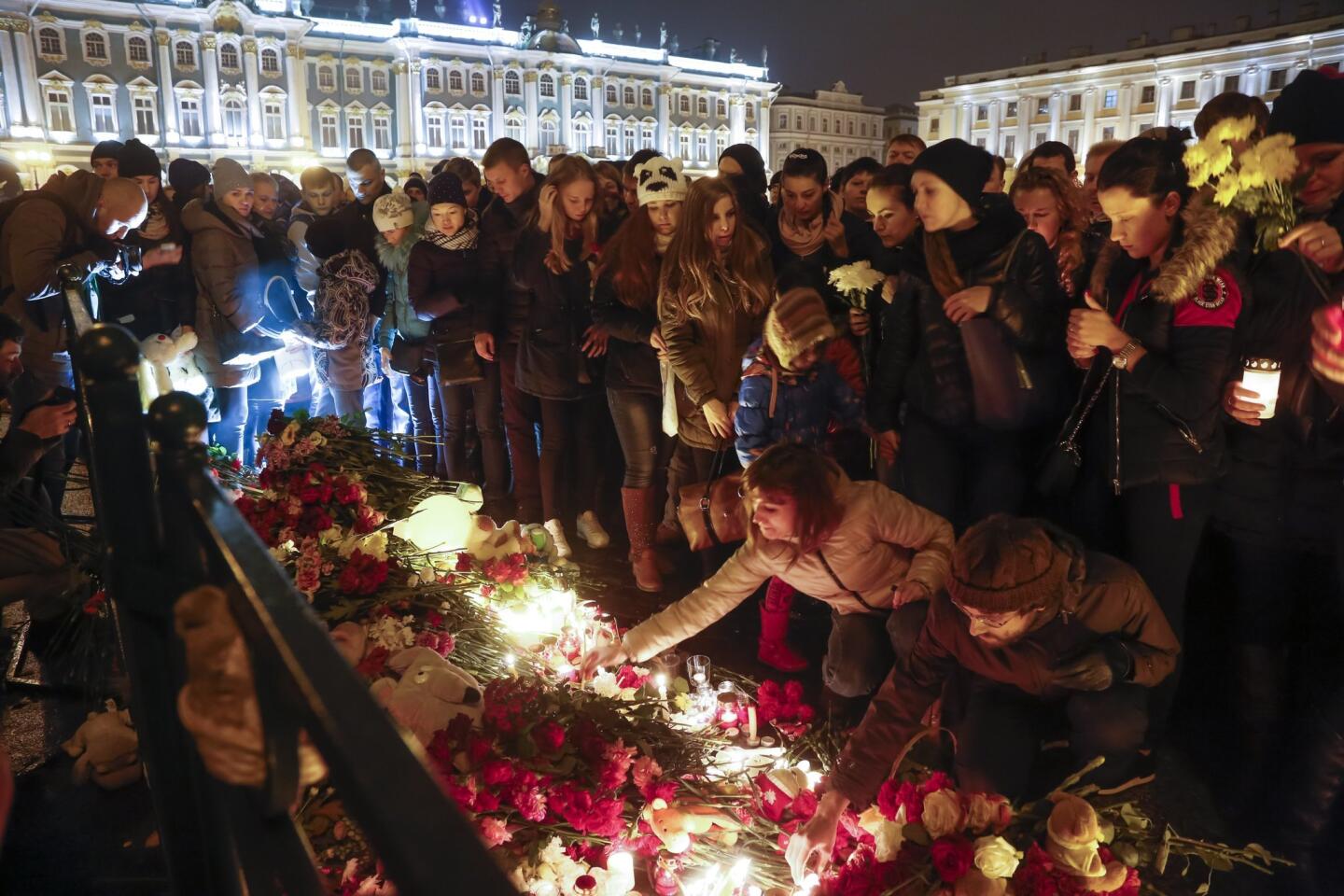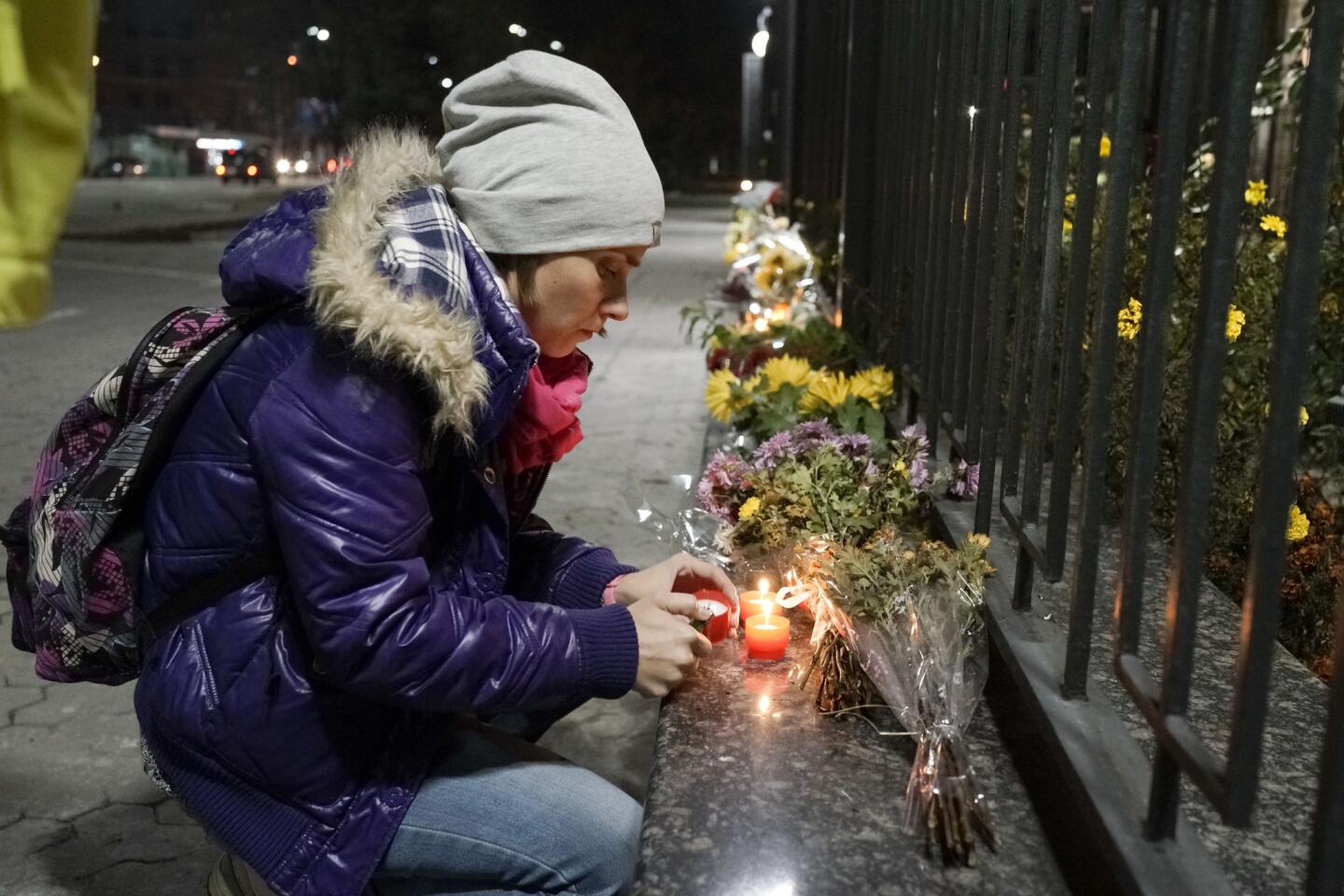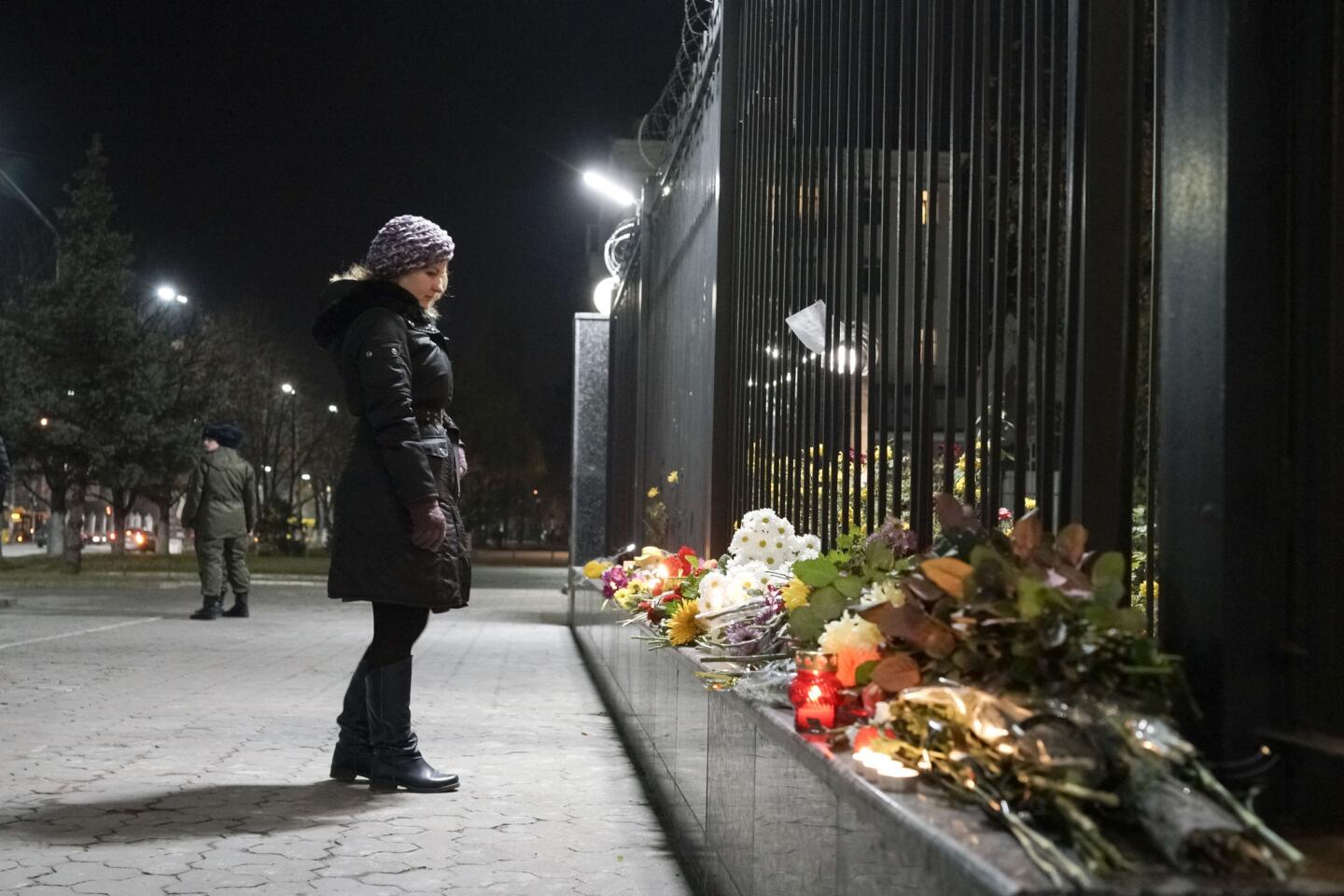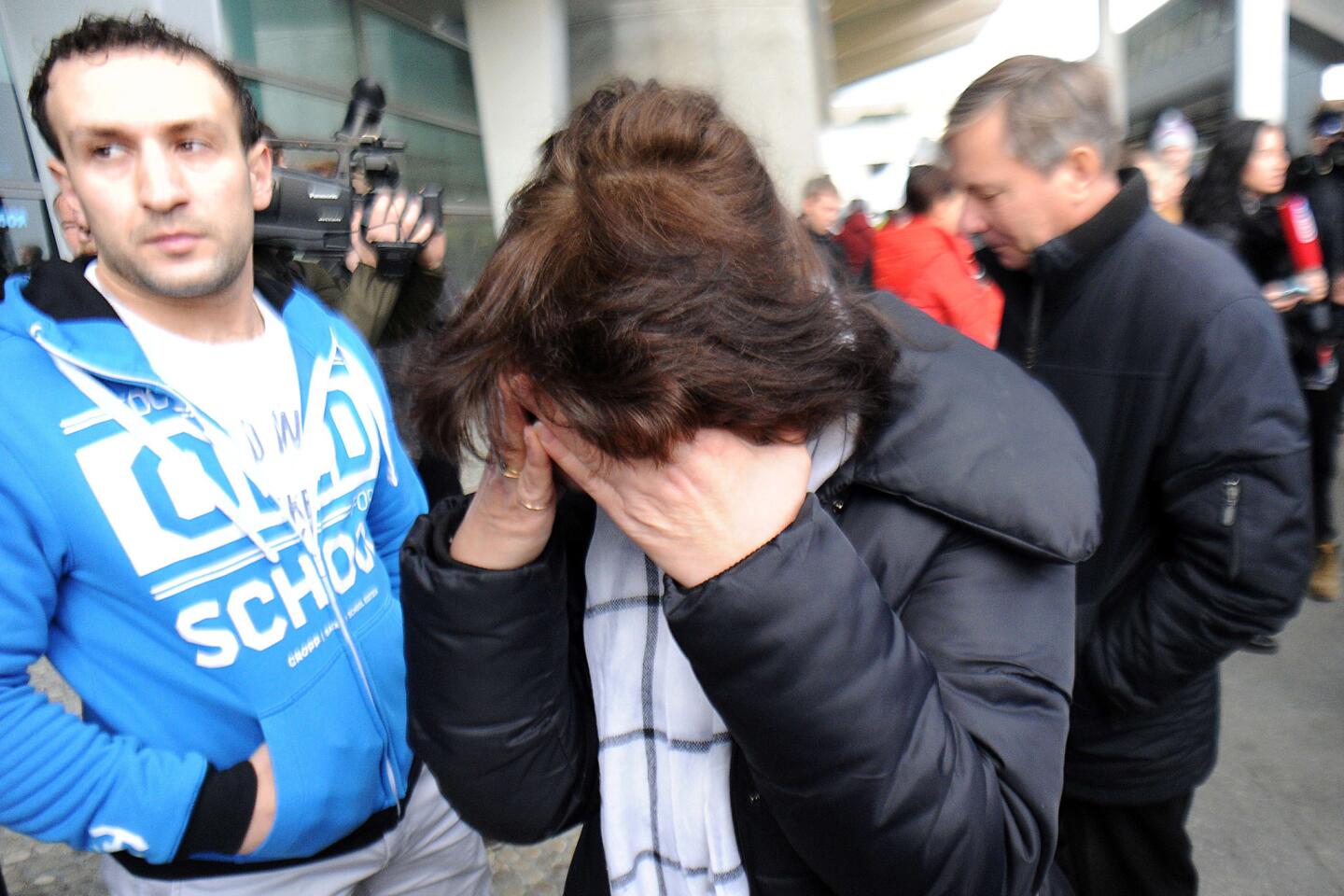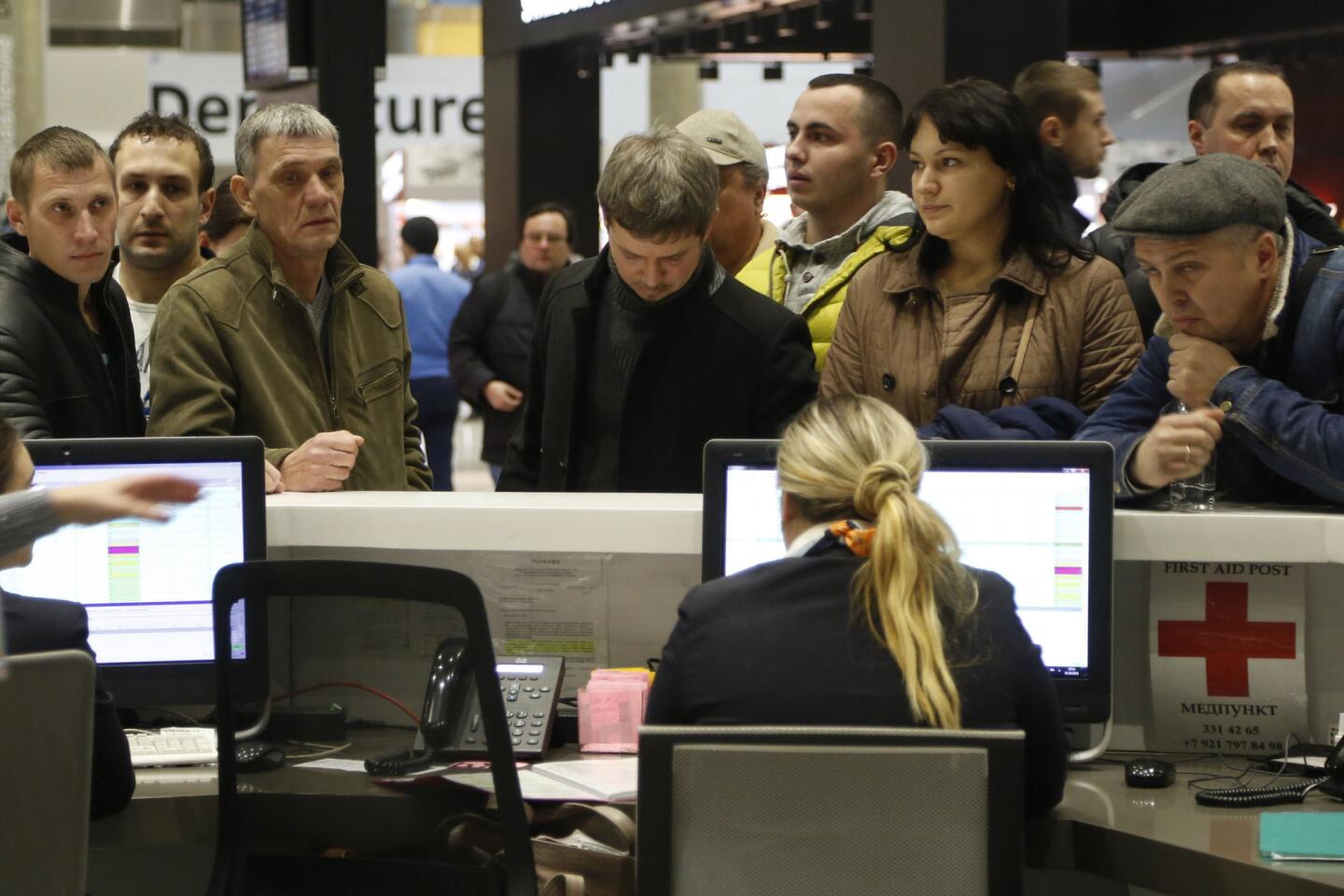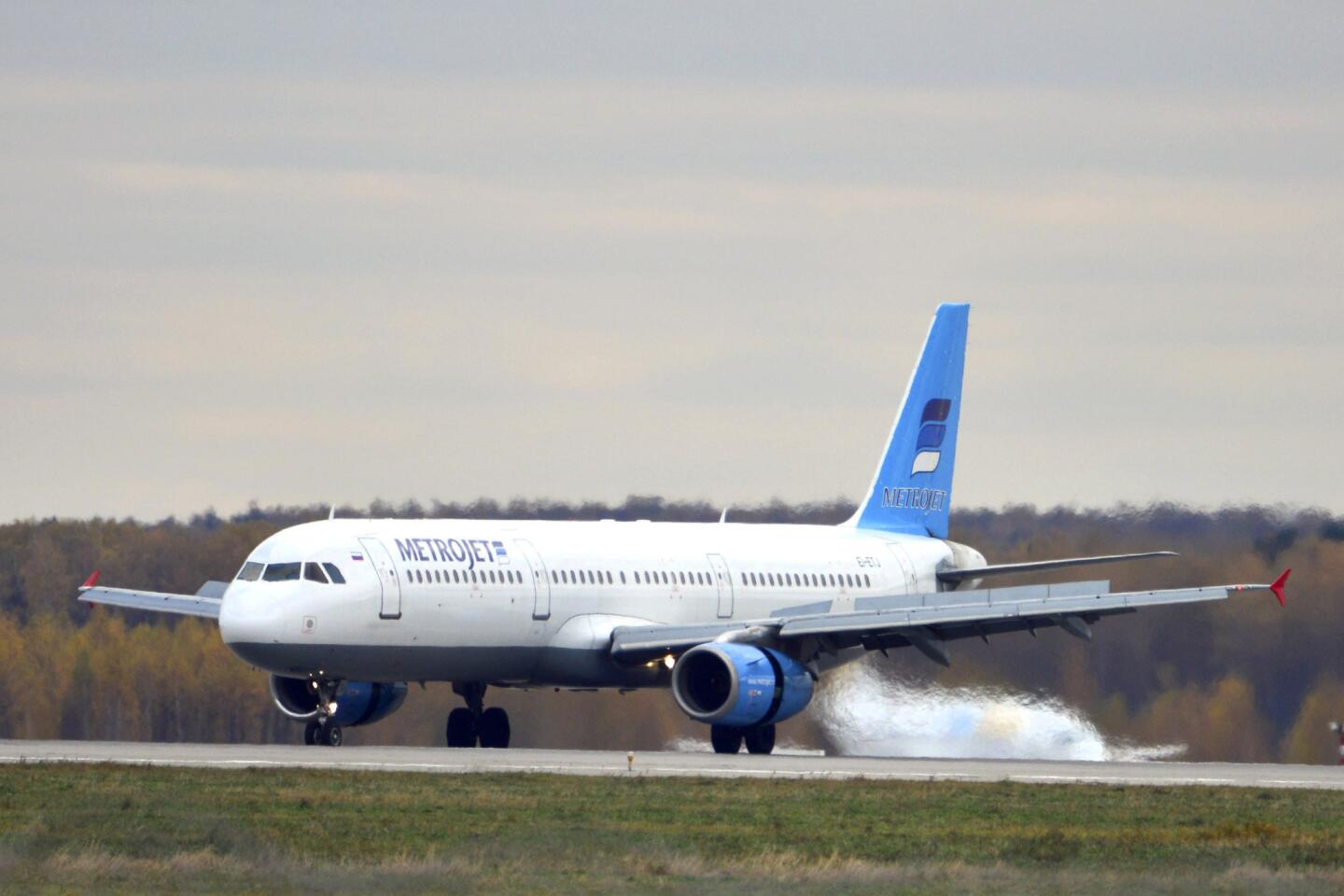Russian tourist jet’s crash in Egypt leaves 224 dead; terrorism claim is disputed
- Share via
reporting from Cairo — A tourist charter jet filled with Russian vacationers mysteriously crashed in a remote part of Egypt’s violence-plagued Sinai Peninsula on Saturday, leaving 224 passengers and crew members dead.
There were no survivors when the Metrojet Airbus A321 headed for St. Petersburg suddenly lost altitude and crashed 23 minutes after departing Sharm el Sheik, a Red Sea resort town popular with Russians seeking sunshine and warm waters.
Officials from Russia and Egypt immediately launched an investigation into the cause of the crash, which could add another black mark to Russia’s spotty aviation safety record if investigators deem it an accident. Questions were also raised over whether Islamist militants angry at Russia’s increasing role in the Syrian civil war may have targeted the craft.
Within hours of the crash, an unverified allegation emerged on Russian state television that a crew member had complained about the jet’s deficiencies in a phone call with his family before the flight. Copilot Sergei Trukhachev told his daughter “that the technical condition of the aircraft left much to be desired,” his wife, Natalya Trukhacheva, told state television, according to the Associated Press.
Meanwhile, Islamic State-allied militants in the Sinai made an unverified and quickly disputed claim that they took down the jet as revenge for Russia’s recently launched air bombing campaign against fighters battling the forces of Syrian President Bashar Assad.
Shattered remains of the 18-year-old jet were found by the Egyptian military in the rugged hinterlands where Egypt has been battling an Islamist insurgency for years.
Dozens of ambulances were dispatched into the desert — only to find passengers’ remains. The jet’s “black box” was also reportedly found.
“I now see a tragic scene,” an Egyptian security officer at the site told Reuters in a telephone interview. “A lot of dead on the ground and many who died whilst strapped to their seats. The plane split into two, a small part on the tail end that burned and a larger part that crashed into a rock face.”
The passenger list for the flight operated by Metrojet, an airline with offices in Moscow, included 214 Russians and three Ukrainians: 138 women, 62 men and 17 children, according to a statement from the Egyptian Ministry of Foreign Affairs. Seven crew members were also aboard.
A newlywed couple named Elena Rodina and Alexqander Krotov, both 33, were on the flight, according to Yulia Zaitseva, who was among those gathered at a hotel near St. Petersburg’s Pulkovo airport to grieve.
Rodina “really wanted to go to Egypt, though I told her ‘why the hell do you want to go to Egypt?’” Zaitseva told the Associated Press.
“We were friends for 20 years,” Zaitseva said. “She was a very good friend who was ready to give everything to other people. To lose such a friend is like having your hand cut off.”
The Russia 24 television network showed an image of a 9-month-old girl named Karina that had been posted on a social media site Oct. 15, when she and her parents departed St. Petersburg for Egypt. They perished on the return flight Saturday, the network said.
Russian President Vladimir Putin ordered flags lowered and TV and radio entertainment programs canceled for a national day of mourning Sunday.
The Islamist militant group Sinai State claimed responsibility for the crash in a statement distributed on Twitter, saying it attacked Russian “crusaders” on the jet in retaliation for bombings in Syria.
“Soldiers of the Caliphate were able to down a Russian airplane over Sinai province,” the statement said.
Egyptian authorities did not immediately respond to the claim. However, Russian Transportation Minister Maksim Sokolov told Russia’s Interfax news agency that the Sinai State’s claim “cannot be considered true.” He said there was no indication the plane was attacked.
U.S. officials have been concerned about aerial safety over the region because of the ongoing fighting. In March, the Federal Aviation Administration posted a warning to U.S. airlines not to fly lower than 26,000 feet over the peninsula.
Flights flying over Sinai or taking off from Sinai were “at risk from potential extremist attacks involving antiaircraft weapons, to include Man-Portable Air Defense Systems (MANPADS), small arms fire, and indirect fire from mortars and rockets targeting Sinai airports,” the FAA said in a notice. “Some of these weapons have the capability to target aircraft at high altitudes and/or upon approach and departure.”
The Metrojet flight was said to be well above 26,000 feet. The jet had reached 31,000 to 35,000 feet before it suddenly plummeted, according to data from FlightRadar24.com.
To rule out a terrorist attack, investigators from Egypt and Russia will also have to consider the possibility of a hijacking or a bomb placed in luggage, said Glen Winn, an aviation instructor at USC and an expert in aviation security and anti-terrorism.
Some airports across the Middle East “are questionable as to how they get their screening accomplished,” Winn said.
Investigators will probably also look at a November 2001 incident in which the jet’s tail struck the ground during a landing at Cairo International Airport, resulting in “substantial” damage, according to the Aviation Safety Network.
The plane, which was then owned by Middle East Airlines, was reportedly repaired and eventually accumulated about 56,000 flight hours in almost 21,000 flights, according to figures from Airbus.
A tail strike, as such incidents are called, can potentially damage the pressure plate at the rear of the aircraft that controls pressurization, Winn said.
If the pressure plate gets damaged and is not repaired, years later the damage could cause sudden depressurization and “the plane comes apart,” Winn said. “It’s over.”
Winn cautioned that “there’s a zillion scenarios” that could result in a plane crash. “It’s all speculative.”
Russia has long had a troubled aviation safety record, with eight fatal crashes in 2011 alone, according to data from the Aviation Safety Network. The tragedies include a charter jet accident in which dozens of professional hockey players were killed.
Fatal crashes have decreased overall since then. But in 2013, 50 people were killed when a Boeing 737 operated by a regional airline crashed in central Russia while attempting to land.
The crash Saturday will also probably add to concerns over tourist safety in Egypt as the government grapples with Islamist uprisings in remote regions. The Egyptian military shot eight Mexican tourists and four Egyptians in the Western Desert last month after mistaking them for terrorists.
Air France and Lufthansa will avoid flying over the Sinai Peninsula while investigators work to determine the cause of the crash, representatives for both airlines told the Associated Press.
The Egyptian Tourism Ministry said it would temporarily halt its campaign in Russia promoting Egypt as a tourism destination “in consideration for the Russian peoples’ feelings” following the crash. Russians make up almost 20% of arriving tourists in Egypt, according to the British newspaper the Guardian.
Special correspondent Hassan reported from Cairo and staff writer Pearce from Los Angeles. The Associated Press also contributed to this report.
ALSO:
California doctor convicted of murder charges in overdose of patients
Burbank man, 20, ejected from car lands on 5 Freeway sign in Glendale
Chinese recall sacrifices under one-child policy, ponder what’s next
More to Read
Sign up for Essential California
The most important California stories and recommendations in your inbox every morning.
You may occasionally receive promotional content from the Los Angeles Times.
